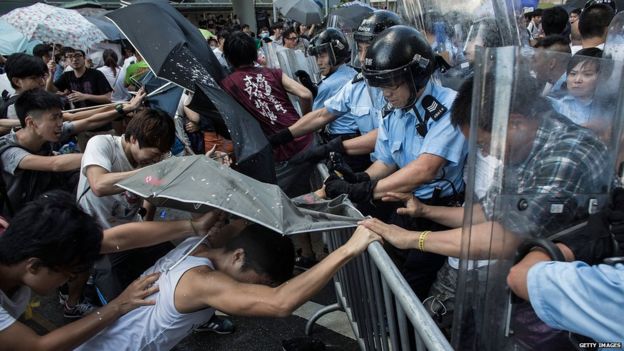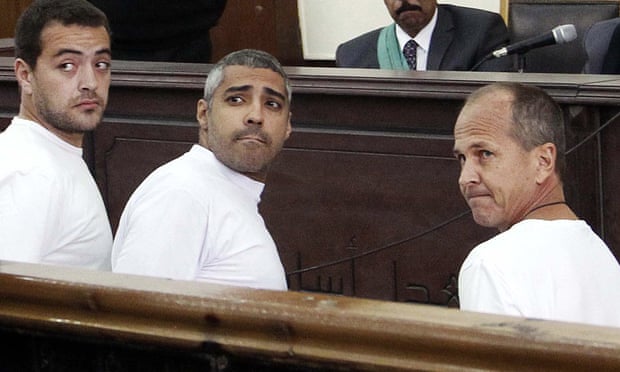Please see the video below to view Ben Ferencz speak for the International Humanitarian Law Dialogs (“IHLD”)
IHL Dialogs: The Ninth Chautauqua Declaration September 1, 2015
Indian Village Court Sentences Women to be Gang-Raped for Their Brother’s Crime
By Christine Khamis
Impunity Watch Reporter, Asia
NEW DELHI, India-
A village council in Sankrot, India has ordered that two sisters be gang-raped and paraded naked through their town with their faces blackened. The order against the sisters is an “eye for an eye” punishment that requires them to be dishonored in order to avenge their brother’s alleged crime.

The all-male village council ordered the punishment of 23-year-old Meenakshi Kumari and her 15-year-old sister after their brother eloped with a married woman from India’s highest social caste, the Jat caste. Ms. Kumari’s family is part of the lowest social caste in India—the Dalit caste, historically known as the Untouchables.
Ms. Kumari’s father has filed a complaint with two national bodies, claiming that his family has been harassed by police and the Jat woman’s family. The family’s home was recently ransacked, with police doing nothing to prevent it. The sisters fled their home after it was ransacked and petitioned to the India Supreme Court for police protection of their family. It is not clear at this point whether police protection will be provided, nor whether the men who ordered the punishment will be arrested.
Amnesty International has run a petition calling for the protection of Ms. Kumari and her sister, which over 100,000 people have signed. Since the petition, extra police have been deployed in Sankrot to avoid any tension that may arise.
Additional Superintendent of Police Vidyasagar Misra states that police investigations revealed no evidence that a village council meeting took place or that there was an order against the sisters. Additionally, townspeople in Sankrot told a BBC reporter that the report of the village council’s sentence is false.
The unelected village councils, called Khap Panchyat, frequently operate outside of the Indian legal system. Due to their operating outside of the legal system, the Indian Supreme Court has labeled them “kangaroo courts”. Khap panchyat are widespread throughout India and are largely made up of men from dominant social classes. The councils often order honor killings and sexual punishments of women, which have been declared illegal by the Indian Supreme Court.
India has faced international criticism over its treatment of women. In late 2012, a 23-year-old female student was gang-raped and murdered, which led to mass street protests in New Delhi. There have been other instances of murders, burnings, and rapes in India since her death, despite the central government’s pledge to reform the Indian penal code.
For more information, please see:
BBC – Did India Village Council Really Order Rape of Two Sisters? – 1 September 2015
International Business Times – India: Village Elders Who Sentenced Sisters to Be Raped as Punishment Face Arrest – 30 August 2015
The Telegraph – Indian Sisters to Be Raped as ‘Punishment’ for Brother Eloping – 29 August 2015
The Independent – Indian Sisters Told They Will be Repeatedly Gang-Raped as Punishment for Their Brother’s Crime Launch Appeal at Supreme Court – 28 August 2015
Joshua Wong and Other Pro-Democracy Student Activists Charged in Hong Kong
By Christine Khamis
Impunity Watch Reporter, Asia
BEIJING, China –
Joshua Wong, Alex Chow, and Nathan Law have been charged for their roles in last year’s Umbrella Movement in Hong Kong. The three men were among the group of students who gathered last September to protest Beijing’s framework for the election of Hong Kong’s next leader.
The students broke into Civic Square, a fenced government area in Hong Kong, and clashed with police, who arrested them. Tens of thousands then gathered in support of the students and another protest group, Occupy Central. The protests gained strength after police began to fire tear gas into the crowds. 79 days of sit-ins followed, creating one of the largest mass protests in Hong Kong’s history.

Mr. Wong, Mr. Chow, and Mr. Law will have their charges heard on September 2nd in magistrates’ court. Mr. Wong, one of the leaders of the Umbrella movement and co-founder of the student activist group Scholarism, has been charged with unlawful assembly and for inciting others to unlawfully assemble. He faces up to five years in prison if he is convicted.
Mr. Chow, former leader of the Hong Kong Federation of Students, has been charged with unlawful assembly. Mr. Law, who is currently the leader of the Federation of Students, has been charged with incitement of others to join in unlawful assembly.
Mr. Wong denies doing anything wrong, claiming that other protests have been held in the Civic Square area without incident. He has stated that he believes the charges are an act of political prosecution, in part because the charges have been made almost a year after the protests. Michael Vidler, Mr. Wong’s attorney, has stated that he may ask the courts to end the action against Mr. Wong.
Mr. Wong and Mr. Law also face separate charges for obstructing police during a different protest last year, which occurred outside the liaison office for the Chinese central government in Hong Kong. They have both pled not guilty to those charges and will appear at a court hearing regarding the charges on Friday.
Mr. Wong says that he will not plan another civil disobedience movement for a few years. Mr. Wong has also stated that there was not a clear route for democracy during last year’s Umbrella Movement and that not enough people were willing to pay the price by protesting. He believes that there will be another Umbrella Movement, but that activists need to better prepare for the next movement.
For more information, please see:
BBC – Hong Kong Student Leaders Charged Over Umbrella Movement – 27 August 2015
The Guardian – Hong Kong Student Leader Joshua Wong Charged Over Protests – 27 August 2015
The Independent – Hong Kong Student Pro-Democracy Leader Joshua Wong Decries ‘Political Prosecution’ – 27 August 2015
The New York Times – Sit-In Leaders Are Charged in Hong Kong – 27 August 2015
Reuters – Key Hong Kong Pro-Democracy Students Charged after Occupy Protests – 19 August 2015
BBC – Joshua Wong: ‘We had no clear goals’ in Hong Kong Protests – 2 August 2015
Egypt Taking Step Backwards on Media Freedom.
By: Tyler Campbell
Impunity Watch Reporter, Africa
CAIRO, Egypt – –
On Saturday an Egyptian judge sentenced three Al-Jazeera English reporters to three years in prison. The three men, Mohamed Fahmy, Baher Mohamed and Peter Greste appealed this ruling and spent 400 days in jail until released on bail by Egypt’s highest court in January, when it granted them a retrial. This case has some important international connections. Mohamed Fahmy is a Canadian national and Peter Greste is an Australian journalist so any ruling by an Egyptian court could seriously affect the men’s abilities to continue as international journalists.
The three men on trial. (Photo courtesy of The Hindu)
Media and civil right groups around the world are loudly criticizing the verdict as baseless and politically motivated by the current Egyptian regime. This is the same regime that took power two years ago when the military removed president Mohamed Morsi from office. Since the regime change the climate for journalist in Egypt has steadily become more unfavorable. Last Saturday when the Judge read the sentences, the original charge of collusion with a terrorist organization was not present. Instead they are being imprisoned for operating without a broadcast license and broadcasting false news with the intentions of harming Egypt. The journalists stand by that they were just doing their jobs and are now being prosecuted for it by current Egyptian leadership.
The lack of evidence, and the nature of said evidence provided by the prosecution seems to give some credence to the idea that the ruling was politically motivated. For instance one of the pieces of evidence offered by the prosecution was the music video of “Somebody that I used to Know” by Gote. Not only are civil rights groups questioning the ruling but governments around the world have expressed concern. The U.S. State Department said it was “deeply disappointed” with the court’s ruling. State Department spokesman John Kirby said, “The freedom of the press to investigate, report, and comment even when its perspective is unpopular or disputed is fundamental to any free society and essential to democratic development.” The Australian government has also pledged its support to Greste. Foreign Minister Julie Bishop said she would “continue to pursue all diplomatic avenues with my Egyptian counterpart to clear Greste’s name.” The ruling is rather troubling for the state of media rights in Egypt. It looks like they have traded one oppressive regime for another. How the current President Abdel Fattah el-Sissi will handle these calls for action by the world remains to be seen.
For more information, please see:
The Guardian — Al-Jazeera journalists sentenced to three years in prison by Egyptian court—
CNN —Egyptian court sentences 3 Al Jazeera journalists to prison—30 August 2015
Al Jazzeera–FAQ: Al Jazeera’s journalists on trial in Egypt—29 August 2015
The Hindu—Egypt sentences 3 Al-Jazeera reporters to 3 years in prison—29 August 2015
